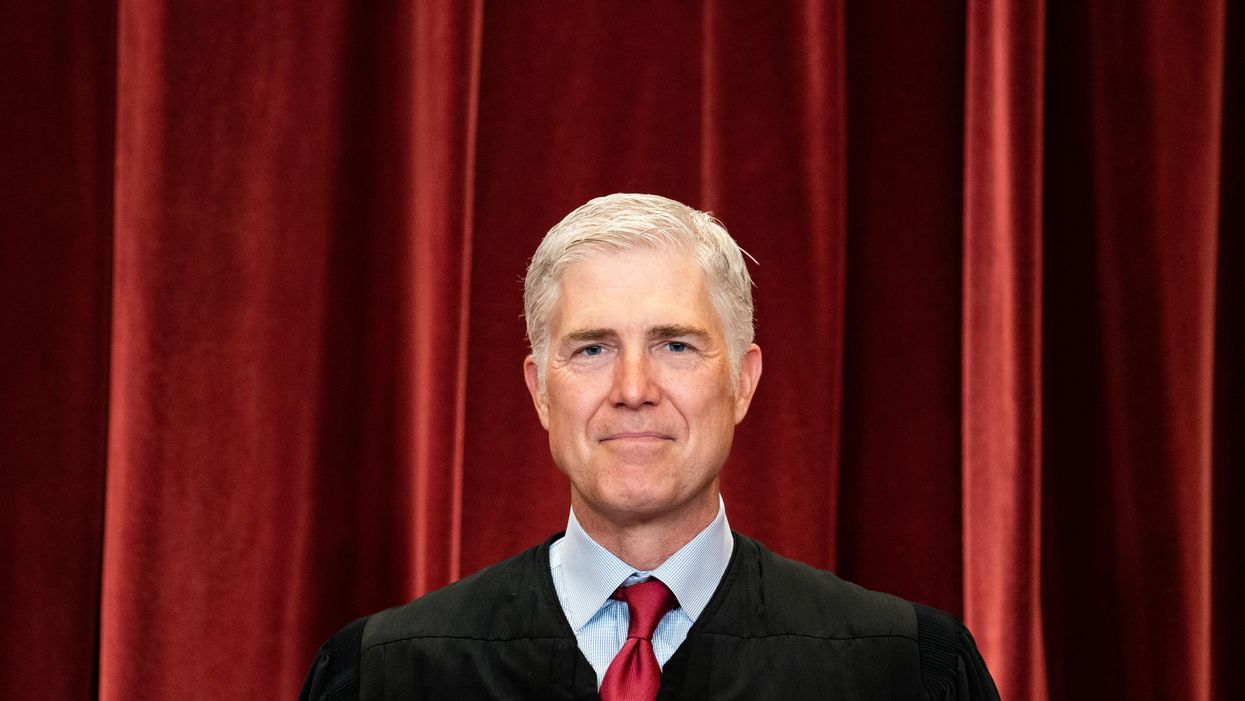Goldstone’s most recent book is "On Account of Race: The Supreme Court, White Supremacy, and the Ravaging of African American Voting Rights."
On Dec. 13, 2021, in a 5-4 decision, the Supreme Court denied an application from 20 New York health care workers to be exempted on religious grounds from the state’s Covid-19 vaccine mandate. The challengers, all but one of whom were Catholic, had claimed that because the three available vaccines had all been derived from or tested on cells acquired from aborted fetuses, the mandate “imposes an unconscionable choice on New York healthcare workers: abandon their faith or lose their careers and their best means to provide for their families.”
To these health care workers, that the fetal cells had been obtained from cell lines decades old made no difference, nor did it matter that the vaccines contained no material from aborted fetuses, nor even that the United States Conference of Catholic Bishops as well as other religious leaders, including the pope, had announced that receiving the vaccines did not violate ecclesiastical law. “Our love of neighbor should lead us to avoid giving scandal,” the chairmen of the Committees on Doctrine and on Pro-Life Activities wrote, “but we cannot omit fulfilling serious obligations such as the prevention of deadly infection and the spread of contagion among those who are vulnerable just to avoid the appearance of scandal.”
The court’s majority, which in something of a surprise included Brett Kavanaugh and Amy Coney Barrett, did not issue a written opinion. But the likelihood is that the nature and magnitude of the health care crisis weighed on their decision, just as it had weighed on Catholic Church leaders.
Justice Neil Gorsuch, however, did offer a written dissent, in which Samuel Alito joined. (Gorsuch also dissented in the 5-4 decision upholding a national vaccine mandate for health care workers.) Although Gorsuch claimed to base his judgment on what he termed “official expressions of hostility to religion” by New York Gov. Kathy Hochul, his actual intent, which he revealed later his opinion, was to elevate what conservatives like to call “religious liberty” to an exalted position among the freedoms to which Americans believe they are entitled. (Hochul eliminated the religious exemption for health care workers because “no organized religion” sought it and those who did were not “listening to God and what God wants.”)
Ignoring that lack of vaccination would put at risk not only the health care workers themselves, but all those with whom they came in contact, Gorsuch framed the issue strictly in terms of religious persecution. “The Free Exercise Clause [of the First Amendment],” he wrote, “protects not only the right to hold unpopular religious beliefs inwardly and secretly. It protects the right to live out those beliefs publicly in the performance of (or abstention from) physical acts.” It is odd that Gorsuch would characterize Catholicism as an “unpopular religious belief,” since Catholics represent more than one-fifth of the population and two-thirds of the members of the court.
Gorsuch’s logic is convenient. He claims repeatedly that those “unpopular” religious beliefs — he avoids mentioning Catholicism specifically — have been specifically targeted, as if the law had required only those holding such beliefs to be vaccinated. In fact, eliminating a religious exemption is declaring that religion does not prevent someone, regardless of their beliefs, from being treated the same as everyone else. His attempt to equate medical exemptions with religious ones fails as well: Requiring workers to put their lives or health in jeopardy is hardly the same as refusing a course of action on religious grounds when the acknowledged leaders of that very religion, on whose past pronouncements the challengers based their refusal, have declared such behavior irreligious. By that reasoning, anyone could refuse any mandated behavior simply by pointing to a convenient passage in the Bible, the Quran, the Book of Mormon or any obscure religious text that supported their decision.
His argument also fails to address whether, if the health care workers are justified in refusing to take the vaccine themselves, would they not be equally justified in refusing to give it to others? After all, if the vaccines themselves are sinful, how can the many nurses among the 20 plaintiffs possibly be willing to encourage abortion by perpetuating the same sinful act they have denounced?
In fact, Gorsuch has it backward. The free exercise clause of the First Amendment is designed to prevent the United States from becoming a theocracy, not to encourage it. (The irony here is that a good deal of the sentiment behind that clause was to prevent religious persecution of Catholics, who were indeed a despised minority in much of the nation.) Free exercise of religion has always been balanced against other requirements of a functioning society, public health among them, and must continue to be for other freedoms, such as the freedom to move about in public without fear, to have meaning.
And Gorsuch is not protecting all religions so much as protecting only certain religions. That he favors Christianity can be easily discerned in that he makes no comment on practices that were once the province of other “unpopular religious beliefs,” such as polygamy, which once was standard among Mormons but is now illegal in all 50 states, a prohibition that was upheld by the Supreme Court.
But even if one ignores all these failings and returns to the question of intent, that “the State’s executive decree clearly interferes with the free exercise of religion — and does so seemingly based on nothing more than fear and anger at those who harbor unpopular religious beliefs,” it is necessary to ask whether Gorsuch will apply the same zeal, the same broad standard, to coming lawsuits involving state legislation targeting voting rights as he has to religious liberty.




















Trump & Hegseth gave Mark Kelly a huge 2028 gift